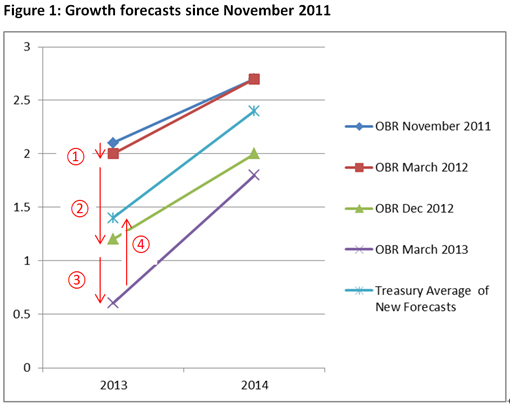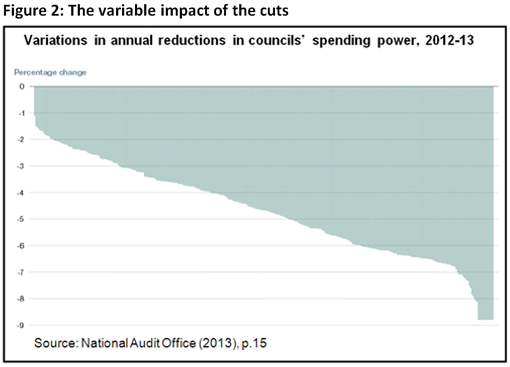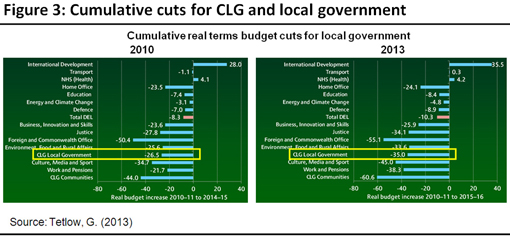This December, in contrast to the previous two years of worse than expected news, the Chancellor has revised his growth forecasts upwards and revised his debt forecasts downwards.
Figure 1 shows successive forecasts for year-on-year GDP percentage growth (at constant prices) since November 2011. It can be seen that the forecasts have been successively revised downwards by the Office for Budget Responsibility since then, as shown by arrows (1), (2) and (3). However the latest survey of forecasts by the Treasury for this November suggests that the Chancellor will be presented in December with a higher-than-expected forecast for GDP growth – as shown by arrow (4) for his Autumn Statement.

Up till now local government has taken more than its fair share of the downward adjustments to spending plans. Funding for councils has fallen by an average 21% and ‘councils serving deprived areas have seen the largest reductions in funding relative to spending since 2010/11’.

Dealing with the problems generated by changing demographics, the economy and central government policy have increased pressure on council finances. Spending on homelessness has risen by 16% since 2011/2 and the number of looked after children increased by 10% between 2009 and 2012. The pressure to meet rising urgent need means there is less to invest in early intervention which will save money and improve lives in the long term.
Local government has reduced its costs by cutting jobs and being more efficient. Council’s can only cut so far before they become unable to meet their 1700 statutory duties, including protecting the most vulnerable and remain viable.

Because Communities and Local Government have taken a disproportionate share of previous budget cuts, local government has also taken more than its fair share of the cuts.
The news that there will be no further cuts to local government funding in 2014/5 is to be welcomed, not least because it is a tacit acknowledgement that local authorities have risen to the challenge of becoming more efficient, in an exemplary way. Perhaps it also reflects some understanding that continued cuts would further endanger services for the most vulnerable.
Local government has wearied of the confrontational style and unrelenting unpleasantness of Eric Pickles. Perhaps, today’s news is a sign that George Osborne is interested in having a more mature and productive relationship with local government.
Professor Catherine Staite, Director of the Institute of Local Government Studies, University of Birmingham